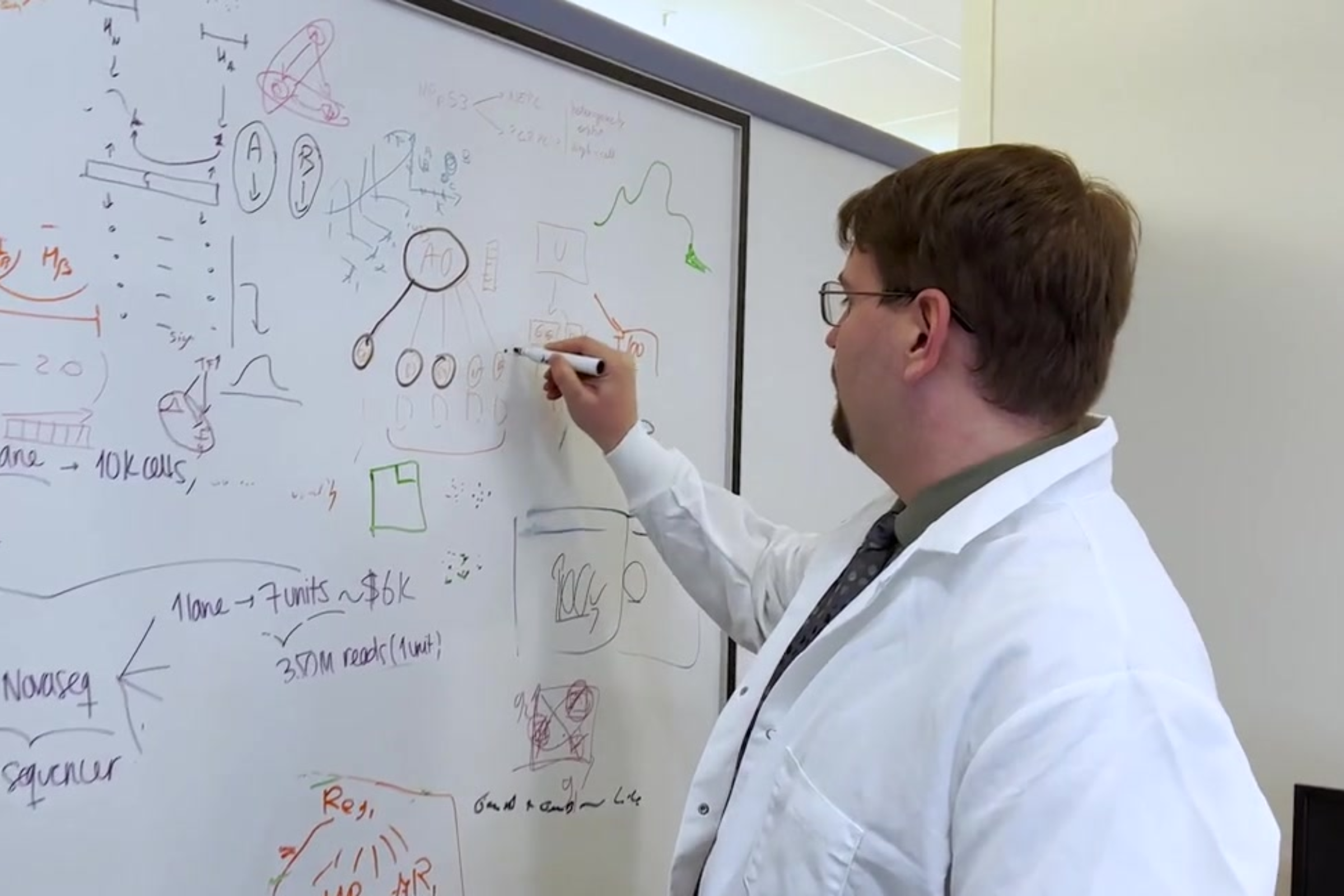Breaking New Ground: Dr. Aleksandar Obradovic's Research on Precision Immunotherapy Wins 2023 Michelson Prize
Dr. Aleksandar Obradovic's innovative approach to combining drugs to treat resistant cancer patients has earned him the prestigious 2023 Michelson Philanthropies & Science Prize for Immunology and $30,000.
Visit the Aleksandar Obradovic Lab.
Dr. Obradovic, associate research scientist in the Department of Systems Biology at Columbia University Irving Medical Center, was awarded the 2023 Michelson Philanthropies & Science Prize for Immunology grand prize in recognition of his essay: “Precision Immunotherapy – A Mechanistic Approach to Overcoming Treatment Resistance.”
The winning paper details his research on the development of novel tools to understand the complex immune makeup of cancers and their escape mechanisms in response to treatment. Along with $30,000 in prize money, Obradovic’s essay is published in the print and online editions of Science.
The award marks another milestone in a scientific journey that started at a young age. “My mother worked in the pharmaceutical industry and my father in academia, teaching data science,” Obradovic says. “As early as middle school I regularly helped my father edit manuscripts and grant proposals. In many ways, I was always destined to become a scientist.”
Dr. Obradovic’s approach delivers a tailored combination of drugs to treatment-resistant cancer patients, with the potential to significantly improve immunotherapy efficacy.
“One of the central foundations of my work is that all cancer therapies are to some extent immune therapies,” Obradovic explains. “Cancer drugs all have an effect on the immune cells inside of a tumor, in addition to whatever their intended effect may be on tumor cells themselves. Even surgery and radiation therapy can be thought of as having an inflammatory effect on the immune system—one that can either work against the efficacy of immuno-therapy, or potentially be leveraged to synergize with it.”
The research is dedicated to understanding the complex interplay between anti-inflammatory and pro-inflammatory cells and to strike a balance between killing cancers, fighting off infections, and preventing auto-immune disease.
“The goal of my precision immune-therapy approach,” Obradovic says, “is to find the right combination of drugs in a treatment-resistant patient that is most likely to tip the balance of their immune cells in favor of anti-tumor immunity.” Doing so successfully will allow patients to undergo more specialized, targeted treatment strategies.
Obradovic started his undergraduate career at Columbia in computer science, before going on to study systems biology and translational immunology. “When I first encountered the concept of immuno-therapy for cancer treatment, I was very excited by this shift toward activation of the immune system and seemingly away from immunosuppressive chemo-therapies,” Obradovic says.
Immunotherapy poses unique challenges, and understanding the differing responses of individual immune systems to specific situations—some accepting donor organs, some not; others succumbing to tumors, while some immune systems reject them—drives Obradovic to this day. “Cancer care is dynamic and rapidly evolving, and it has been inspirational to contribute towards that evolution.”
The Michelson Philanthropies & Science Prize for Immunology will allow Obradovic to maintain the momentum of his research in a field that could have a profound impact on patient outcomes. “Leveraging the tools to better understand which immune cells are at play in any immune-related disease may allow for the discovery of druggable targets in those cells.” Obradovic explains. “That could lead to finding personalized drug combinations to tip the immune balance away from organ transplant rejection or auto-immune disease, to list some examples.”
From his early years editing manuscripts for his father, to his current work in immunotherapy, Obradovic has always been immersed in science. The excitement of discovery and the very real impact it can have on people's lives explains this enduring motivation.




